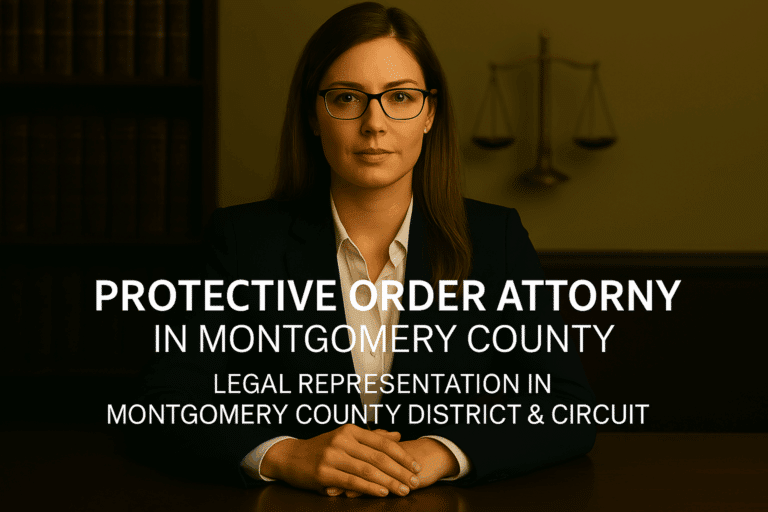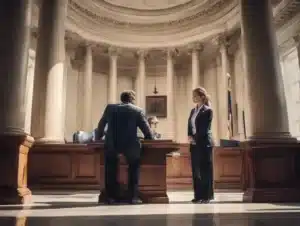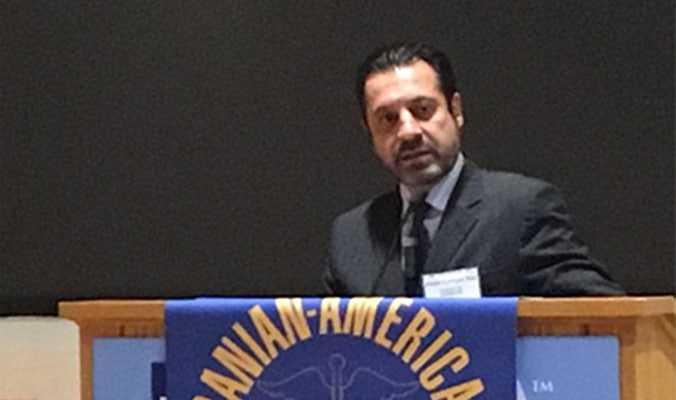
Domestic Violence Lawyer for Children (Minors)
Maryland Protective Order to Protect Children from Domestic Abuse & Violence: Grounds, Procedure, and Legal Authority
Our domestic violence lawyer for children understands the complexities of applying and obtaining a protective order for minor children. We understand the sensitivities involved and can represent you and your children in navigating the legal processes that maximize your chances of obtaining a protective order for a child. Protective orders in Maryland serve as vital tools to protect and shield minor children from violence, abuse, and exposure to dangerous individuals. A Protective Order obtained by a Petition for Protective Order that was initiated by a parent can provide immediate and long-term relief under Maryland Code, Family Law §4-506.
Contact our Domestic Violence Attorney and protective order lawyer for children through our “Contact Page” or call us direct at (301) 309-0660
Who Can File a Protective Order for a Child?
Under Md. Code, Family Law § 4-501, a child qualifies as a “person eligible for relief” if the respondent is a:
• Parent, stepparent, or guardian
• Household member or relative by blood, marriage, or adoption
• Person with custody or supervision over the child
The petitioner may be the child’s parent, legal guardian, or another adult acting in the child’s interest.
Legal Grounds for a Child Protective Order
Maryland law defines “abuse” broadly when the victim is a child. Grounds include:
• Physical abuse: Non-accidental injury inflicted by a caregiver or household member
• Sexual abuse: As defined in Md. Code, Criminal Law §§ 3-602, 3-303 to 3-308
• Mental injury: Observable impairment of the child’s psychological functioning
• Stalking: Under Md. Code, Criminal Law § 3-802
• False imprisonment
• Labor trafficking: Including coercion or exploitation of a child for labor
These grounds are codified in Md. Code, Family Law § 4-501(b) and interpreted in light of Maryland case law.
Our Domestic Violence Attorney and protective order lawyer for children are ready to assist you. Contact us through our “Contact Page” or call us direct at (301) 309-0660
Filing Process and Types of Protective Orders
1. Interim Protective Order
• Available when courts are closed
• Issued by a District Court commissioner
• Expires at the next court session
2. Temporary Protective Order
• Issued by a judge after an ex parte hearing
• Requires “reasonable grounds” to believe abuse occurred
• Cited in Md. Code, Family Law § 4-505
3. Final Protective Order
• Requires a finding by preponderance of the evidence
• May include:
• No-contact provisions
• Custody transfer
• Firearm surrender
• Stay-away orders from school or childcare
• Temporary possession of the home or pet
• Governed by Md. Code, Family Law § 4-506
Key Case Law Interpreting Protective Orders for Children
• In re Nathaniel A., 160 Md. App. 581 (2005): affirmed the trial court’s finding that both Nathaniel and his sister Madeline were children in need of assistance (CINA). Furthermore, the Court held that the mother’s actions toward Nathaniel, including fracturing his arm out of frustration and subjecting him to numerous unnecessary doctor visits, were sufficient grounds to find a substantial risk of harm to Madeline (Nathaniel’s sister), even without direct evidence of abuse against her. Moreover, the Court held that because the mother’s past behavior with Nathaniel was predictive of future conduct, Madeline was at a substantial risk of harm from her. Finally, the Court concluded that it was not necessary for Madeline to be harmed before intervention was permitted.
• C.M. v. J.M., 258 Md.App. 40, 295 A.3d 193 (Md. App. 2023) The court set out the standards for entering a protective order to protect a child upon showing of mental injury of a child.
• Coburn v. Coburn, 342 Md. 244 (1996): The Court held that due to the remedial, preventive purpose of prevention of domestic violence legislation, evidence of alleged past abuse is highly relevant to establish the need for protection and the appropriate remedy. Therefore, the Court held that the evidence of past abuse is admissible in protective order hearings.
Schedule your call with our Domestic Violence Attorney and protective order lawyer for children through our “Contact Page” or call us direct at (301) 309-0660
Duration and Extensions
Final protective orders typically last up to one year. However, they may be extended up to two years or made permanent under certain conditions, such as repeat violations or severe abuse. See Md. Code, Family Law § 4-506(j)-(k).
Strategic Considerations
• Venue: File in the District or Circuit Court where the child resides or where abuse occurred.
• Evidence: Medical records, therapist reports, school documentation, and witness affidavits bolster credibility.
• Emergency relief: Consider combining protective order filings with emergency custody motions under Md. Rule 12-204.
Resources and Statutory Links
• Md. Codes, Family Law § 4-501, § 4-505, § 4-506
Expanded Grounds for Child Protective Orders in Maryland
Beyond the statutory definitions, Maryland courts recognize nuanced forms of harm that justify protective relief:
Psychological Abuse – Mental Injury of a Child
• Consider citing DSM-5 criteria for trauma-related disorders when arguing psychological harm
Exposure to Substance Abuse
• Courts have granted protective orders where children were exposed to drug use, paraphernalia, or intoxicated caregivers—even absent direct physical harm.
• Use Md. Code, Family Law § 5-701(a) definitions of neglect and substance exposure to bolster arguments.
Threats and Coercive Control
• Threats of harm, intimidation, or coercive control—especially in domestic violence contexts—can justify child-focused relief.
• Coburn v. Coburn, 342 Md. 244 (1996): Fear of imminent serious bodily harm is sufficient, even without physical injury.
Reach out to our Domestic Violence Attorney and protective order lawyer for children through our “Contact Page” or call us direct at (301) 309-0660
Procedural Nuances
Emergency Custody + Protective Order
• File concurrently under Md. Rule 12-204 and Md. Code, Family Law § 9-306.
• Use CC-DC-DV-001 for protective orders and CC-DR-070 for emergency custody.
Mandatory Reporting Triggers
• Md. Code, Family Law § 5-705 has a mandatory reporting requirement.
Evidence Strategy
Prioritize:
• School records showing behavioral regression
• Therapist letters (even if not testifying)
• Photos, texts, or social media posts
• Police reports—even if no charges filed
For immediate help contact our Domestic Violence Attorney and protective order lawyer for children through our “Contact Page” or call us direct at (301) 309-0660
Judicial Trends and Local Practice
Montgomery County Bench Practices:
• Judges often scrutinize whether the child’s fear is “reasonable” and whether the respondent poses a continuing threat.
• In cases involving parental alienation claims, courts require clear evidence of manipulation or coaching before discounting the child’s fear.
Common Pitfalls
• Failing to name the child as a protected party on the order
• Overlooking firearm surrender provisions under Md. Code, Public Safety § 5-133(b)(1)
• Not requesting school stay-away orders—especially relevant in shared custody cases
Protective Order Lawyer for Minor Children
Kamkari Law– Protective Order Lawyer and domestic violence attorney for Children
10411 Motor City Drive, Suite 750, Bethesda, Maryland 20817
For differences between a Maryland Protective Order and a Peace Order visit our article HERE.



